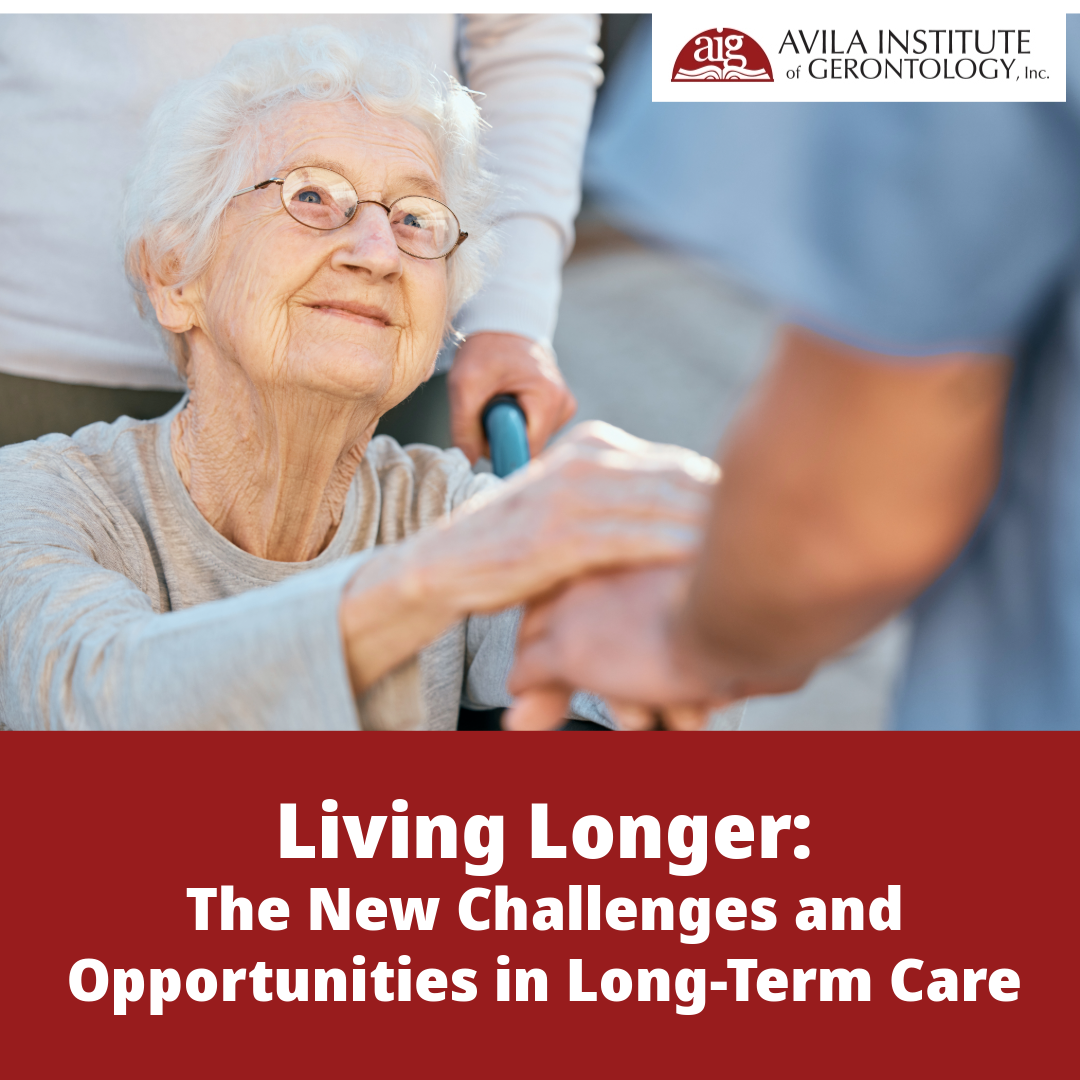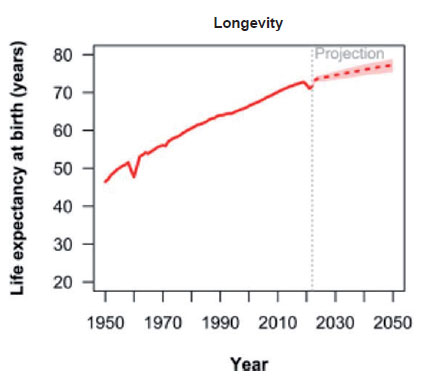
As we stand on the brink of a new era, the unprecedented increase in human lifespan is a remarkable achievement of modern society. With projections indicating that the average global life expectancy will reach about 75 years by 2030, and continuing to grow through the year 2050, we are witnessing a significant demographic shift.1 Advances in healthcare, better nutrition, healthier lifestyles, and robust public health initiatives mean that people are now living longer, healthier lives.
This profound shift brings both opportunities and challenges, particularly in the realm of long-term care.

Advances in Healthcare
Medical science has made tremendous strides in preventing and treating diseases that once shortened lifespans. These developments mean that more people are reaching advanced ages, enjoying longer lives with the help of ongoing medical advancements.
Better Nutrition
An improved understanding of nutrition and access to a variety of healthy foods have played a significant role in increasing life expectancy. Diets rich in fruits, vegetables, whole grains, and lean proteins contribute to better health and longevity. As people become more aware of the impact of their diet on their health, they are making better choices that support long-term wellness.
Healthier Lifestyles
Increased awareness of the importance of exercise, mental health, and avoiding harmful habits like smoking has led to healthier populations. Regular physical activity, stress management, and mental health care are key factors in living longer, healthier lives. Public health campaigns and personal choices are converging to create a culture that values and supports healthy living.
Public Health Initiatives
Programs aimed at improving water quality, sanitation, and access to healthcare have had profound effects on life expectancy, especially in developing regions. These initiatives ensure that communities have the basic resources needed to thrive and support the health of their populations.

Impact on Long-Term Care
Increased Demand for Services
As more people live into their 80s, 90s, and beyond, the demand for long-term care services is skyrocketing. This includes home care, assisted living, nursing homes, and specialized dementia care. The sector must expand to meet the needs of a growing aging population.
Need for Specialized Care
The oldest populations often have complex healthcare needs, including chronic diseases, mobility issues, and cognitive impairments. This requires a highly trained workforce adept in geriatric care, palliative care, dementia care, and chronic disease management. Specialized training and expertise will be crucial in providing high-quality care.
Workforce Challenges
The growing number of older adults means that the long-term care sector needs more caregivers, nurses, and healthcare professionals. Addressing workforce shortages and ensuring proper training and support for these professionals is critical. Recruitment and retention of skilled workers will be key to maintaining standards of care.
Infrastructure and Facilities
There will be a need for more long-term care facilities and for existing ones to adapt to the needs of an older population. This includes making buildings more accessible, creating more social spaces, and ensuring a safe environment for residents. Facilities must evolve to provide both functional and welcoming environments.
Financial Implications
The cost of long-term care can be substantial. Governments, insurance companies, and individuals will need to address how to fund the increasing demand for these services. Policy changes and new financial models may be required to ensure that long-term care is affordable and sustainable.
Technological Innovations
Technology will play a crucial role in the future of long-term care. Innovations such as telemedicine, wearable health monitors, and smart home systems can help manage the health and wellbeing of older adults more effectively, often allowing them to stay in their homes longer. These tools can enhance the quality of care and provide greater independence for seniors.
Focus on Quality of Life
As the population ages, there is a growing emphasis on not just living longer but living well. Long-term care facilities are increasingly focused on providing environments that support mental, emotional, and social wellbeing, alongside physical health. Enhancing quality of life for residents is becoming a primary goal.
The significant increase in the number of people living longer is a testament to human progress, but it also presents challenges that need to be addressed. The long-term care sector is at the forefront of these changes, requiring innovation, investment, and a dedicated workforce to meet the needs of our aging population especially because many elders enter long-term care when they can no longer be cared for at home.
At the Avila Institute, we are committed to the care of our seniors. We provide comprehensive training, webinars, conferences, and support for long-term care staff to stay abreast of the upcoming challenges we will face with an increase in people needing care.
The era of longevity is upon us, and it is both a triumph and a call to action. Let us embrace this new age with the commitment to providing the best care possible for our aging population, ensuring that they live their later years with dignity, comfort, and joy.
- World Population Prospects 2022; Department of Economic and Social Affairs, Population Division; UN DESA/POP/2021/TR/NO.3
